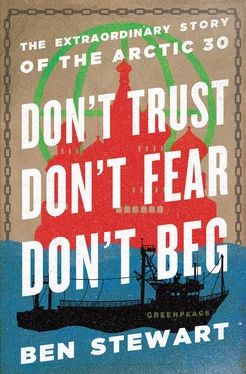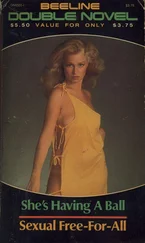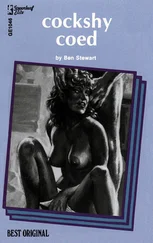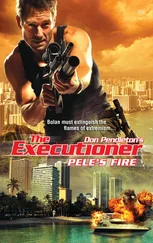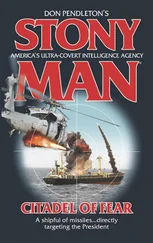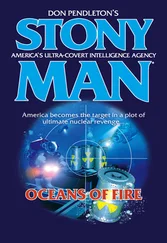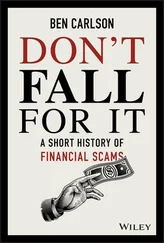As a high school student, and even during his early years at university, Pavel was a devoted member of the Young Communist League. But by the end of his time as a student his commitment to Marxism had collapsed. Ideology had clashed with reality and he viewed Soviet society with ‘cynical indifference’. [34] Gale Reference Team, Biography – Litvinov, Pavel (1940–), Contemporary Authors – 2002 (digital download)
Pavel became a physics teacher. He befriended a group of intellectual anti-Soviet writers and worked for the release of political prisoners, hungrily consuming samizdat literature – banned publications which now included the works of Solzhenitsyn. [35] David Remnick, Lenin’s Tomb: The Last Days of the Soviet Empire (New York, 1993), p.17.
In 1967 he was pulled into KGB headquarters and warned he was risking arrest and imprisonment for supporting dissidents, but Pavel made a verbatim record of the interrogation. [36] Pavel Litvinov, Dear Comrade: Pavel Litvinov and the Voices of Soviet Citizens in Dissent (1976)
It was published in the International Herald Tribune and four months later he received a telegram from ‘a group of friends representing no organisation’ who ‘support your statement, admire your courage, think of you and will help in any way possible’. The letter was signed by Yehudi Menuhin, W.H. Auden, Henry Moore, Bertrand Russell, J.B. Priestley, Paul Scofield, Sonia Brownell (who signed as ‘Mrs George Orwell’), Cecil Day-Lewis and the legendary Russian composer Igor Stravinsky. [37] Dear Comrade
‘They transmitted the letter on the BBC in Russian,’ says Pavel. ‘And the BBC called who they could and asked them why they signed this telegram. So they called Stravinsky, and Stravinsky was already a very old man. And he said, “We have to support Litvinov because my teacher, the composer Nikolai Rimsky-Korsakov, also suffered from Russian censorship.” And I started to cry. It was so touching. Rimsky-Korsakov was history from one hundred years earlier, he was played on every radio station in Russia, and suddenly through Stravinsky I connected with Rimsky-Korsakov.’
The following spring Pavel married Lev Kopelev’s daughter Maya. The old man was an inspiration to Pavel, an example of how someone could live outside the system, in his heart at least.
On 21 August 1968, Soviet tanks entered Prague to suppress a nascent move by its reformist government, led by Alexander Dubček, to implement ‘socialism with a human face’ – at that time, by definition, a break with the Soviet Union. Demonstrations broke out across the world, tens of thousands took to the streets to protest the invasion, in Prague itself many demonstrators were shot by Soviet troops. But it was inconceivable that there would be protests in the USSR itself.
Until Pavel Litvinov and seven of his friends resolved to act.
On the evening of the twenty-fourth they went to the Kopelevs’ apartment for a party, fully aware it would be their last night of freedom. ‘We knew we were going to prison for years,’ Pavel remembers. ‘To a labour camp.’ The following day they would certainly be jailed, but they were ready. The famed singer Aleksandr Galich was at the party, and at one point he began to sing a protest song that was popular decades earlier among opponents of Tsar Nicholas I.
Can you come to the square?
Dare you come to the square
When that hour strikes?
Pavel listened silently, but inside he felt the baton of resistance being passed. He almost announced what would happen the next day, but he remained silent, not because he feared betrayal but because some of the older dissidents gathered in the flat might insist on joining him. He doubted they could survive the retribution of the Soviet state. [38] Lenin’s Tomb , pp. 18–19.
The next morning, a Sunday, Pavel and the others walked towards Red Square. They were being followed, and they knew it. When they reached the Lobnoye Mesto – the Place of Skulls – they sat down and unfurled a Czechoslovak flag. Officers from the KGB descended on the group. The protesters had no more than a moment to lift their hand-painted banners.
Shame to the occupiers!
For your freedom and ours!
Long live free and independent Czechoslovakia!
The KGB rained blows down on their heads, shouting, ‘These are all dirty Jews!’ and ‘Beat the anti-Soviets!’ [39] Lenin’s Tomb , p. 19.
‘They hit Viktor Fainberg,’ Pavel remembers. ‘He was sitting next to me and broke four of his teeth. They beat me with a bag. It felt like it was full of bricks but I think it was books. The adrenaline was so high that I didn’t notice much, but they beat me very hard. Later I touched the top of my head and it hurt like hell.’
The group was bundled into unmarked cars. Before they could be driven away to the nearby KGB headquarters a policeman’s whistle blew, and from the Kremlin’s Spassky Gate there came a line of black cars that drove right past Pavel and his friends. Later they would learn that Alexander Dubček was inside one of those cars. The leader of the Czechoslovak rebels was now himself a prisoner. [40] Lenin’s Tomb , p. 19–20.
Pavel was charged and jailed, his trial set for six weeks’ time. It was said that the Soviet leader Leonid Brezhnev and his KGB chief Yuri Andropov were incandescent that such a protest had occurred at the very centre of Soviet power, [41] Yuily Kim song lyrics http://www.bards.ru/archives/part.php?id=6188
in front of the captured Dubček no less, and it was widely known that the verdict and sentences in the coming trial had been decided long before the proceedings even began. In his book Lenin’s Tomb – a Pulitzer Prize-winning account of the fall of the Soviet empire – the journalist David Remnick would later write that the protest in Red Square ‘struck one of the first blows against the regime’.
The trial came and Pavel was convicted. But he wasn’t jailed. Instead he was sentenced to exile in Siberia. The regime had decided they didn’t need another martyred dissident, especially one with a famous name. Pavel packed a suitcase and left Moscow with Maya and his six-year-old son, Dima.
For five years the Litvinov family lived in exile in Usugli, a village lost in the vast Siberian taiga , where the forests go on for hundreds of miles. If you walked away from that village and got lost, you’d die. That’s what Dima remembers of his childhood in exile. Nature was all around them, and it was so much more powerful. It was in control.
In December 1973 the family was back in Moscow. The KGB pulled Pavel in again and made him an offer he couldn’t refuse. Either leave the USSR permanently or be sent to the gulag – a Soviet labour camp.
Pavel feared that if the family stayed in the USSR, Dima himself would eventually be jailed. ‘My wife Maya and me were thinking something will happen to Dima because it was clear that if I didn’t emigrate then I would be arrested again. And it was clear that a teenager in a dissident family at that time cannot help but become rebellious and probably will go to prison. In a way it sounds strange but the Soviet state in my time under Brezhnev tried to respect the law. Not human rights but the law, more than it does now. It’s much more arbitrary now. The Soviet regime in my time was kind of more stable, they knew what they were doing, they were prepared, they were moving away from Stalin and his regime, they tried to demonstrate that everything was legal. Putin’s regime is more improvising. That’s why it is more scary.’
Three months later Pavel Litvinov left Moscow on a train to Vienna with his wife, his son Dima and their infant daughter Lara.
Читать дальше
